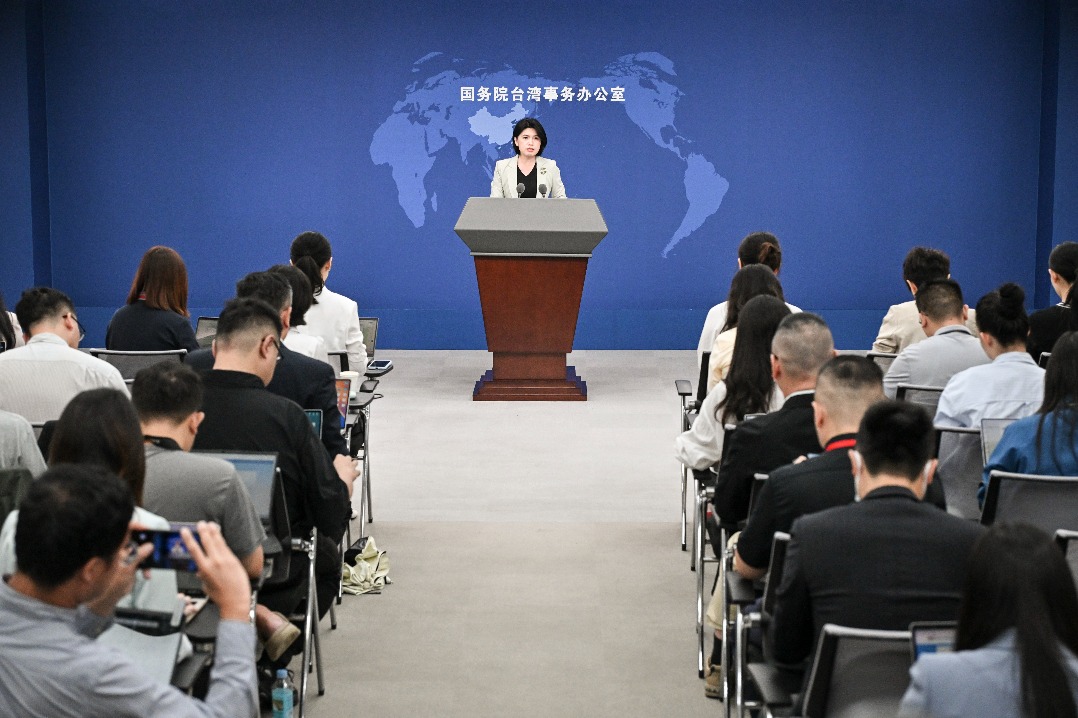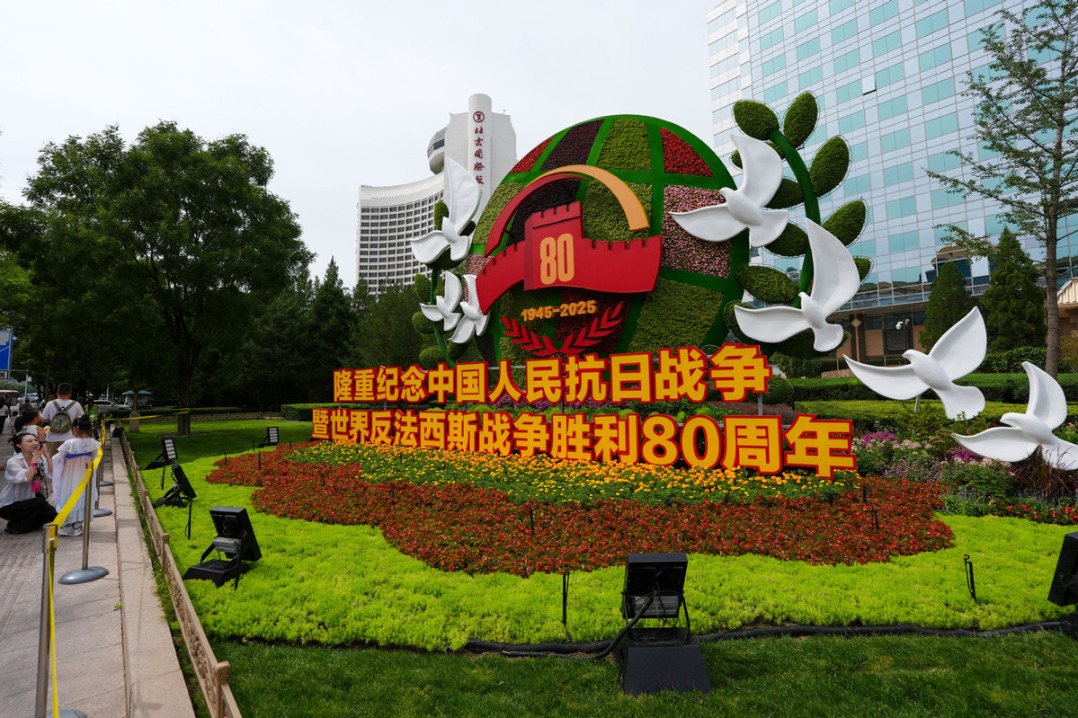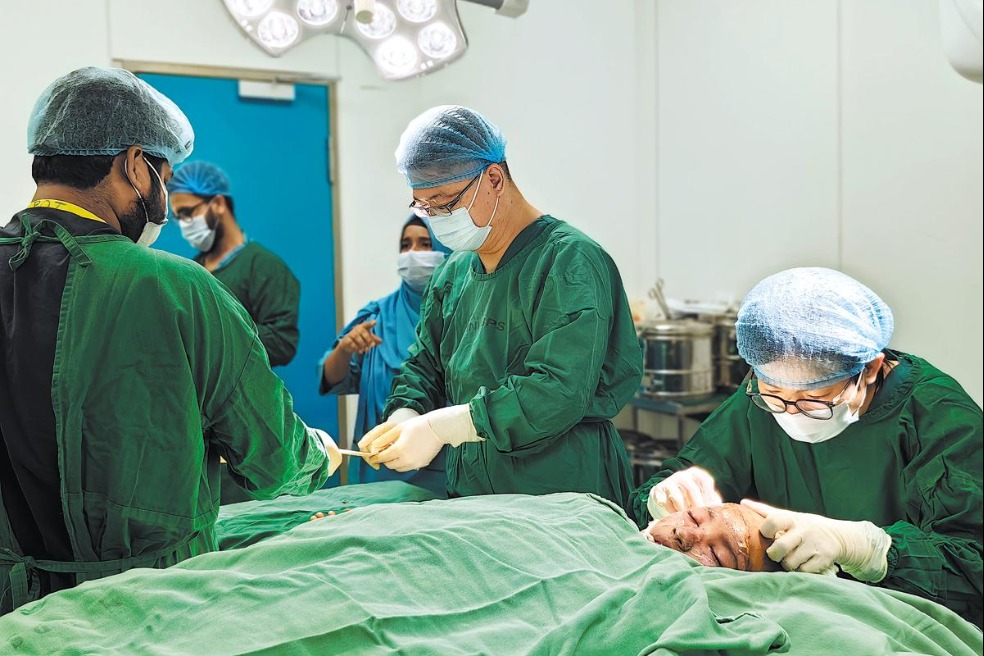Chinese treatments benefit world
Armed with innovative drugs, BeiGene goes from strength to strength overseas

On Feb 17, BeiGene Ltd, a mainland biotech company listed on both the Hong Kong stock exchange and the Nasdaq stock market, announced that the United States Food and Drug Administration has accepted to review its supplemental marketing application seeking approval for Brukinsa (zanubrutinib) for the treatment of adult patients with Waldenstrom's macroglobulinemia, a type of blood cancer.
In November 2019, the drug received accelerated approval in the US to treat mantle cell lymphoma in adult patients. It thus became the first Chinese cancer treatment approved for the US market.
BeiGene's rapid inroads into the global market signal the coming of age of China's biotech industry. Homegrown treatments are now regarded top-class and have been receiving regulatory approvals abroad to be offered to people with urgent clinical needs.
That marks a contrast to the past when foreign pharmaceutical companies would make a beeline for the huge domestic market in China, an economy flush with high growth and improving business environment.
China's biotech companies such as BeiGene have made a name for themselves with intense focus on research and development of innovative drugs.
In June, BeiGene's drug Brukinsa received conditional approval in China as a treatment for adult patients with chronic lymphocytic leukemia or small lymphocytic lymphoma who have received at least one prior therapy, and as a treatment for adult patients with MCL who have received at least one prior therapy.
Currently, more than 20 marketing applications for Brukinsa have been submitted, covering around 45 countries and regions globally, including the United States, China and the European Union.
The company said it aims to provide Chinese treatments to patients worldwide, and is making big efforts to achieve the goal through product research and development, and commercialization practices at a global level.
As of January, the company had built an R&D team of more than 2,100 people at home and abroad, accounting for 40 percent of its employees. They have been conducting 60 clinical trials in more than 35 countries and regions, among which 25 are phase III or potentially registration-enabling studies.
More than 12,000 patients and healthy subjects have been enrolled for the trials, among whom more than 5,700 are overseas.
"The future of Chinese innovative pharmaceutical companies relies on successful global operations, because that is a significant way for Chinese pharmaceutical companies to grow into international pharmaceutical giants," said Wu Xiaobin, president of BeiGene.
It is now planning an initial public offering on the technology-focused STAR Market of the Shanghai Stock Exchange. The company has 47 drug assets at clinical or commercial stage, including two independently developed commercial-stage drugs.
Its second drug at commercial stage, the anti-PD-1 antibody tislelizumab, also proved to be a success targeting at both domestic and global markets. Tislelizumab is the first drug from BeiGene's immuno-oncology biologics program and is being developed globally for the treatment of a broad array of both solid tumor and hematologic cancers.
Apart from three approved indications and two indication-pending approvals that BeiGene has received in China, the drug currently spans 15 potentially registration-enabling clinical trials globally. The company has enrolled over 7,700 patients for the drug's trials, including about 2,500 patients in more than 20 countries and regions overseas.
In January, an agreement between multinational pharmaceutical giant Novartis and BeiGene was announced, which outlicensed the cancer treatment to the former.
According to the deal, Novartis will develop, manufacture and commercialize tislelizumab in the US, Canada, Mexico, member countries of the European Union, the United Kingdom, Norway, Switzerland, Iceland, Liechtenstein, Russia and Japan.
BeiGene will receive a record $2.2 billion from Novartis for the arrangement. The upfront cash payment will be $650 million and the company is eligible to receive up to $1.3 billion upon the achievement of regulatory milestones, and $250 million upon the achievement of sales milestones, in addition to royalties on future sales of tislelizumab in licensed territories.
Wu said the company has established a strong global product R&D and commercialization system, as well as advanced facilities and manufacturing technique for production, to support the launch and commercialization of more innovative drugs in overseas markets.
"We expect to have up to 12 commercial-stage assets by the end of 2021, with more than 30 new assets in pipelines, and are determined and confident to build more commercial teams in the world to meet commercialization needs of those new products," Wu said.
"R&D, production and commercialization capacity are our core competence."
The company has built up commercial teams in developed countries including the US that have local employees, and in the next step, will expand presence in developing countries, especially those participating in the Belt and Road Initiative, Wu said.
Developing countries tend to have limited innovation capacity for new drug development, and cannot afford expensive drugs, and thus are often neglected, which creates opportunities for Chinese pharmaceutical companies that can offer quality drugs at affordable prices, he said.
Wang Lai, senior vice-president of BeiGene, observed Chinese pharmaceutical companies used to be followers in new drug development, but the landscape has been changing fast as many of them strengthen their innovation to develop first-in-class drugs. The increasing number of license-out deals in the Chinese pharmaceutical industry is just a reflection of such a trend, he said.
A recent report by Soochow Securities said the go-global strategy has become important for Chinese pharmaceutical companies even as they compete for domestic market share. Under the circumstances, considerable price cuts may be required for a drug to get into the national essential drug list for reimbursement.
As more Chinese pharmaceutical companies eye global markets, they are expected to have greater initiative and bargaining power in the global pharmaceutical market, said the report released in December.
A recent case is an out-license deal between US-based Eli Lilly and Co and Hong Kong-listed mainland biotech company Junshi Biosciences.
Last month, the USFDA granted an Emergency Use Authorization to Eli Lilly's combination of antibody drugs, bamlanivimab (700 milligrams) and etesevimab (1,400 mg), for the treatment of COVID-19. The therapy is authorized to treat mild to moderate COVID-19 in patients aged 12 and older who are at high risk for progressing to severe COVID-19 or hospitalization.
Lilly licensed etesevimab from Shanghai-based Junshi Biosciences in May as the antibody was poised to enter clinical testing. The antibody was jointly developed by Junshi Biosciences and the Institute of Microbiology, which is part of the Chinese Academy of Sciences.

Today's Top News
- Tajikistan looks to China for deeper ties
- High-tech manufacturing lifts industrial profits
- Avenue blooms with flowers to mark victory
- Mainland slams DPP for distorting WWII history
- Northeast Asia trade in focus at Jilin expo
- Organic agriculture forum unites global experts in Datong































